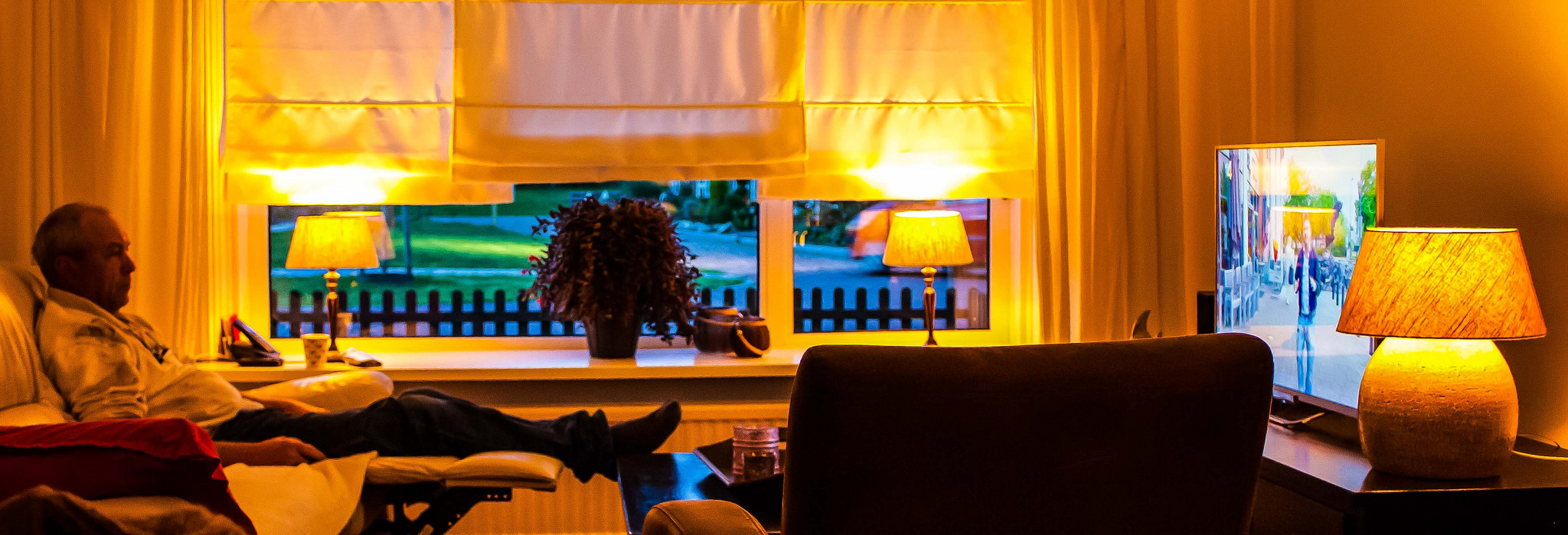Can Amazon and Twitter Kill Off TV by Streaming Live Events?

Last year, Twitter started streaming Thursday night NFL games. Viewership was disappointing for the social network, averaging an audience of 266,000 per game compared to 15.8 million on regular television. But despite the flop, Internet giants remain convinced that they can win over your eyeballs for live coverage.
Amazon certainly hopes so. The NFL, perhaps unimpressed with the results on Twitter, recently announced that the e-commerce giant will take up the mantle of streaming Thursday night football games online, offering the games as part of its Prime video service. It beat off Facebook and Google in the process, but Amazon is paying $50 million for the privilege of airing 10 games—a jump from the $10 million that Twitter paid for the same number last year.
Twitter, however, is still in the live streaming game. Yesterday, it announced that it was striking up deals to air a whole bunch of live programming with plans to stream Bloomberg news 24-7, along with Women's National Basketball Association games, a current affairs show by BuzzFeed, and a gadget show by the Verge. Clearly, it believes that you want to watch live shows online.
And don’t forget about Facebook’s huge push towards video. The social network has made no secret of the fact that it would like to leverage its position to take on TV, and live streams will be a major part of that move.
There is, however, one small problem that all of these services will need to overcome. As Twitter’s NFL experiment has already shown, for live TV people still mostly turn to … well, the TV.
Where does that leave an outfit like the NFL, which has for years dominated TV ratings, but now finds itself with declining viewership, even as its live streaming audience doesn't live up to expectations?
This Recode article describes how the league is trying desperately to reconcile this quandary. The piece suggests, among other things, that it may be showing people too much football for its own good, leading to the decline in traditional TV viewership. It also hints that partnering with Amazon to stream games may work out for the league, while portending ill for anyone that relies solely on old-school audiences. It quotes the reaction of an anonymous “high-ranking TV exec” to Amazon’s arrival on the scene:
“Amazon comes into the space with such unbelievably deep pockets and a clearly demonstrated willingness to operate at either extremely low profit margins or no profit margins at all; it does make them kind of a threatening player. The potential for increased tension is definitely there.”
From the standpoint of the executive, then, it’s possible to shrug off Twitter’s NFL experiment given its lackluster numbers. But the media juggernaut that is Amazon just might be enough to tear eyeballs away from the TV and toward an app—and the old guard appears to be nervous.
(Read more: BBC, Recode, “Facebook Wants to Take Over TV”)
Keep Reading
Most Popular
Large language models can do jaw-dropping things. But nobody knows exactly why.
And that's a problem. Figuring it out is one of the biggest scientific puzzles of our time and a crucial step towards controlling more powerful future models.
The problem with plug-in hybrids? Their drivers.
Plug-in hybrids are often sold as a transition to EVs, but new data from Europe shows we’re still underestimating the emissions they produce.
Google DeepMind’s new generative model makes Super Mario–like games from scratch
Genie learns how to control games by watching hours and hours of video. It could help train next-gen robots too.
How scientists traced a mysterious covid case back to six toilets
When wastewater surveillance turns into a hunt for a single infected individual, the ethics get tricky.
Stay connected
Get the latest updates from
MIT Technology Review
Discover special offers, top stories, upcoming events, and more.